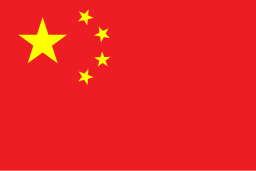China has been increasingly focusing on its environmental problems and reducing production in the coal-intensive steel industry has been a key goal. That's great for both the environment and the global steel markets, which are suffering through an overcapacity situation. However, it looks like Mr. Market is doing more to help than the Chinese government, which is an even better outcome for global steel.
Too much steel
According to Nucor (NUE -4.52%) CEO John Ferriola, "Global steel production overcapacity is the greatest threat to Nucor and to our entire industry." He's noted China as a major problem, stating that the country has, "...at least 300 million tons" of excess capacity.

After complaining in the third quarter that America had, "...become the world's dumping ground for electrical steel," AK Steel (AKS) CEO James Wainscott was happy to note in the fourth quarter that, "...the International Trade Commission has made a preliminary finding in favor of the domestic industry..." The only country he highlighted in that discussion was China.
In another trade case, CEO of U.S. Steel (X) Mario Longhi made sure to point out that, "The U.S. Department of Commerce is expected to announce preliminary anti-dumping duties in February for the [oil country tubular goods (OCTG)] trade case." He expects the levy to help reduce, "import pressure heading into the second quarter."
Although China wasn't directly targeted by that trade case, it was noted as putting pressure on the global OCTG industry. Essentially Chinese overproduction increases the need for regional competitors like South Korea, Vietnam, and India (all targeted in the case) to sell below cost into the U.S. market.
The cover story
China's response to the overcapacity issue has been muted, at least directly. The country, however, is talking up its efforts to close steel mills to help reduce air pollution. That makes good headlines, but appears to be something of a cover story. For example, Xu Zhongbu, chief of Beijing Metal Consulting, told The Chicago Tribune that China is, "...only closing steel mills that are already dead."

By "dead" Zhongbu means unprofitable. For example, the Qingquan Steel mill is closed after workers went on strike in October and have yet to return. Their gripe? Not getting paid for six months. Although six months is a long time to work without pay, Mr. Market is clearly looking to play catch up in China. And he doesn't give a fig about the environment.
Benefiting from Mr. Market
Clearly U.S. mills like Nucor, U.S. Steel, and AK Steel will all benefit from a reduction in steel output in China. Their comments about the impact of dumping is a testament to that. So, too, will POSCO (PKX -0.27%). POSCO is a giant steel mill with notable operations in South Korea, a country specifically targeted in the OCTG case.
When detailing POSCO's fourth quarter earnings, the company noted that China's "Structural overcapacity worsened" last year. Since China is both a key market and competitor for POSCO, any reduction in capacity will aid results. The same is true of ArcelorMittal (MT 1.31%), which has notable operations in India—another target of the OCTG case.
The really interesting thing, however, is that China is potentially seeing market forces take precedence over government mandate. In a country that's controlled so tightly from the top down, that's an important development to watch. It shows that there may be limits to the county's planned economy no matter how big and important China is to the global economy.
That, in turn, would be a welcome relief for the countries around the world that have embraced free markets. The United States is a leading proponent of letting markets drive themselves. The trade cases brought by the steel industry show how hard it is to be "hands off" when a global player isn't playing be the same rules.
If Mr. Market is starting to impose a new set of rules in China, steel companies around the world will benefit. And it could also mean important changes ahead for other industries, as well.
Has China had its day in the sun?




